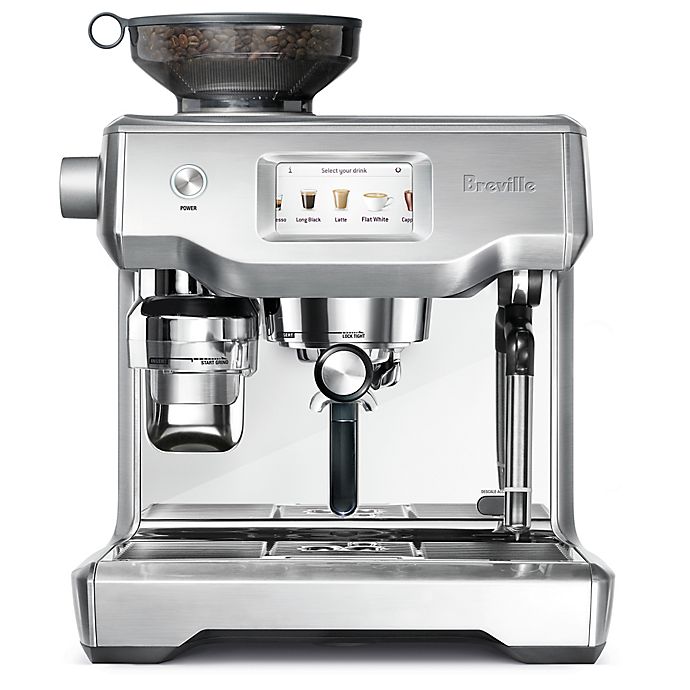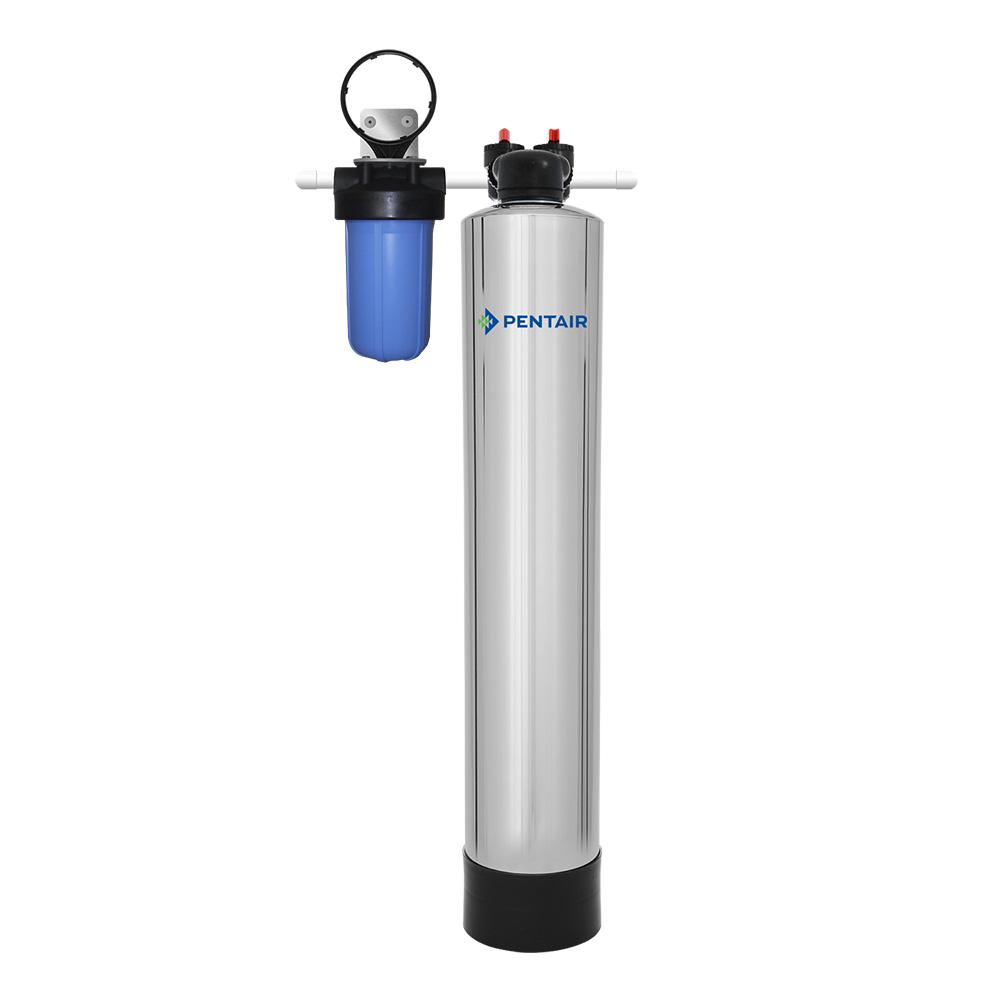Breville BEP920 Dynamic Duo Machine and Grinder Package – Seattle Coffee Gear
A machine and grinder combo made for your espresso journey, the Breville Dynamic Duo will have you pulling shots like a pro in no time.
A machine and grinder combo made for your espresso journey, the Breville Dynamic Duo will have you pulling shots like a pro in no time. A package of Breville’s well-loved BES920 Dual Boiler and BCG820 Smart Grinder Pro, this Duo from down-under offers excellent, repeatable espresso in one convenient package. Center-stage: The Breville Dual Boiler. Renowned as one of the most temp-stable machines in its segment, this high-tech espresso machine offers dual PID-controlled stainless steel boilers, volumetric or time-based shot programming, programmable pre-infusion, even an auto-on timer so that it’s always ready to brew. Matched with this is Breville’s own Smart Grinder Pro. Equipped with a digital display, the Smart Grinder Pro simplifies setting and saving your grind setting. Together, these two make a capable combo that will help you make coffee you love.
- Dual Boiler: 2 stainless steel boilers offer precision temperature management for perfect espresso and fast steaming.
- PID Control: Set brew and steam temp to the degree with the Dual Boiler’s PID controls.
- Programming: The BDB comes packed with programming—like shot length, time, preinfusion, and even automatic-on scheduling.
- 40 Grind Settings: The Smart Grinder Pro offers 40 grind settings for easy, repeatable grinds.
- Timed Dosing: Once you’re dialed-in, the SGP offers timed dose programming for tap-and-grind operation.
- Espresso or Brew: Not in the mood for espresso? The Smart Grinder offers double duty as a regular coffee grinder.
Additional information
| Model Number | BEP920BSS1BUS1 |
|---|---|
| Product Weight (lbs.) | 30 |
| Watts | 1700 W |
| Volts | 120 V |
| Cup Clearance | 4 inches |
| Reservoir Size | 2.5 L |
| Portafilter Size | 58mm |
| Warm Up: Brew Time | 18 minutes |
Coffee is a beverage brewed from roasted coffee beans. Darkly colored, bitter, and slightly acidic, coffee has a stimulating effect on humans, primarily due to its caffeine content. It has the highest sales in the world market for hot drinks.
The seeds of the Coffea plant's fruits are separated to produce unroasted green coffee beans. The beans are roasted and then ground into fine particles typically steeped in hot water before being filtered out, producing a cup of coffee. It is usually served hot, although chilled or iced coffee is common. Coffee can be prepared and presented in a variety of ways (e.g., espresso, French press, caffè latte, or already-brewed canned coffee). Sugar, sugar substitutes, milk, and cream are often added to mask the bitter taste or enhance the flavor.
Though coffee is now a global commodity, it has a long history tied closely to food traditions around the Red Sea. The earliest credible evidence of coffee drinking as the modern beverage appears in modern-day Yemen in southern Arabia in the middle of the 15th century in Sufi shrines, where coffee seeds were first roasted and brewed in a manner similar to how it is now prepared for drinking. The coffee beans were procured by the Yemenis from the Ethiopian Highlands via coastal Somali intermediaries, and cultivated in Yemen. By the 16th century, the drink had reached the rest of the Middle East and North Africa, later spreading to Europe.
The two most commonly grown coffee bean types are C. arabica and C. robusta. Coffee plants are cultivated in over 70 countries, primarily in the equatorial regions of the Americas, Southeast Asia, the Indian subcontinent, and Africa. As of 2023, Brazil was the leading grower of coffee beans, producing 35% of the world's total. Green, unroasted coffee is traded as an agricultural commodity. Despite coffee sales reaching billions of dollars worldwide, farmers producing coffee beans disproportionately live in poverty. Critics of the coffee industry have also pointed to its negative impact on the environment and the clearing of land for coffee-growing and water use. The global coffee industry is massive and worth $495.50 billion as of 2023. Brazil, Vietnam, and Colombia are the top exporters of coffee beans as of 2023.
A gear is a rotating circular machine part having cut teeth or, in the case of a cogwheel or gearwheel, inserted teeth (called cogs), which mesh with another (compatible) toothed part to transmit rotational power. While doing so, they can change the torque and rotational speed being transmitted (in inverse proportion) and also change the rotational axis of the power being transmitted. The teeth on the two meshing gears all have the same shape.
The basic principle behind the operation of gears is analogous to the basic principle of levers. Meshing gears of different diameters produce three changes — (i) a change in torque, creating a mechanical advantage, (ii) an inverse change in rotational speed and (iii) a change in the sense of the rotation, a clockwise rotation becoming an anti-clockwise one and vice-versa. The ratio of the output torque to the input torque is equal to the ratio of the diameter of the output gear to that of the input gear τout⁄τin = diaout⁄diain. This is called the gear ratio. The ratio of the output rotational speed to the input rotational speed is equal to the inverse of the ratio of the diameter of the output gear to that of the input gear ωout⁄ωin = (diaout⁄diain)-1 = diain⁄diaout. The diameters of the gears are measured at a point between the root and tips of the gear teeth called the pitch circle.
A gear may also be known informally as a cog.
Two or more meshing gears, working in a sequence, are called a gear train or a transmission. The gears in a transmission are analogous to the wheels in a crossed, belt pulley system. An advantage of gears is that the teeth of a gear prevent slippage. In transmissions with multiple gear ratios—such as bicycles, motorcycles, and cars—the term "gear" (e.g.,e "first gear") refers to a gear ratio rather than an actual physical gear. The term describes similar devices, even when the gear ratio is continuous rather than discrete, or when the device does not actually contain gears, as in a continuously variable transmission (CVT). Sometimes a CVT is referred to as an "infinitely variable transmission".
Furthermore, a gear can mesh with a linear toothed part, called a rack, producing movement in a straight line instead of rotation (movement in a circle). See Rack and Pinion for an example.
A machine is a physical system that uses power to apply forces and control movement to perform an action. The term is commonly applied to artificial devices, such as those employing engines or motors, but also to natural biological macromolecules, such as molecular machines. Machines can be driven by animals and people, by natural forces such as wind and water, and by chemical, thermal, or electrical power, and include a system of mechanisms that shape the actuator input to achieve a specific application of output forces and movement. They can also include computers and sensors that monitor performance and plan movement, often called mechanical systems.
Renaissance natural philosophers identified six simple machines which were the elementary devices that put a load into motion, and calculated the ratio of output force to input force, known today as mechanical advantage.
Modern machines are complex systems that consist of structural elements, mechanisms and control components and include interfaces for convenient use. Examples include: a wide range of vehicles, such as trains, automobiles, boats and airplanes; appliances in the home and office, including computers, building air handling and water handling systems; as well as farm machinery, machine tools and factory automation systems and robots.
Seattle ( see-AT-əl) is a seaport city on the West Coast of the United States. It is the seat of King County, Washington. With a 2022 population of 749,256 it is the most populous city in both the state of Washington and the Pacific Northwest region of North America, and the 18th-most populous city in the United States. The Seattle metropolitan area's population is 4.02 million, making it the 15th-largest in the United States. Its growth rate of 21.1% between 2010 and 2020 made it one of the country's fastest-growing large cities.
Seattle is situated on an isthmus between Puget Sound, an inlet of the Pacific Ocean, and Lake Washington. It is the northernmost major city in the United States, located about 100 miles (160 km) south of the Canadian border. A gateway for trade with East Asia, the Port of Seattle is the fourth-largest port in North America in terms of container handling as of 2021.
The Seattle area has been inhabited by Native Americans (such as the Duwamish, who had at least 17 villages around Elliot Bay) for at least 4,000 years before the first permanent European settlers. Arthur A. Denny and his group of travelers, subsequently known as the Denny Party, arrived from Illinois via Portland, Oregon, on the schooner Exact at Alki Point on November 13, 1851. The settlement was moved to the eastern shore of Elliott Bay in 1852 and named "Seattle" in honor of Chief Seattle, a prominent 19th-century leader of the local Duwamish and Suquamish tribes. Seattle currently has high populations of Native Americans alongside Americans with strong Asian, African, European, and Scandinavian ancestry, and, as of 2015, hosts the fifth-largest LGBT community in the U.S.
Logging was Seattle's first major industry, but by the late 19th century the city had become a commercial and shipbuilding center as a gateway to Alaska during the Klondike Gold Rush. The city grew after World War II, partly due to the local Boeing company, which established Seattle as a center for its manufacturing of aircraft.
Beginning in the 1980s, the Seattle area developed into a technology center; Microsoft established its headquarters in the region. In 1994, Internet retailer Amazon was founded in Seattle, and Alaska Airlines is based in SeaTac, Washington, serving Seattle–Tacoma International Airport, Seattle's international airport. The stream of new software, biotechnology, and Internet companies led to an economic revival, which increased the city's population by almost 50,000 in the decade between 1990 and 2000.
The culture of Seattle is heavily defined by its significant musical history. Between 1918 and 1951, nearly 24 jazz nightclubs existed along Jackson Street, from the current Chinatown/International District to the Central District. The jazz scene nurtured the early careers of Ernestine Anderson, Ray Charles, Quincy Jones, and others. In the late 20th and early 21st century, the city also was the origin of several rock bands, including Foo Fighters, Heart, and Jimi Hendrix, and the subgenre of grunge and its pioneering bands, including Alice in Chains, Nirvana, Pearl Jam, Soundgarden, and others.






by William
I bought the Dynamic Duo recently. I am very pleased with the results. The Dual Boiler was very easy to dial in my favorite beans and is very consistent once I got there.
I did have an issue with the Smart Grinder Pro, but got quick help from the SCG tech staff and Breville CS. Once Breville got the video of the SGP stalling while grinding, they approved a replacement and I had a new grinder in a few days. Great CS.
I use the SGP as a single dose grinder, so can’t opine on the timed dosing accuracy, but as a single dose setup it is great. It makes changing grind settings between our two favorite beans simple and very repeatable. My wife is thrilled as well.
by Yaneira
If you do like espresso this is a great machine.